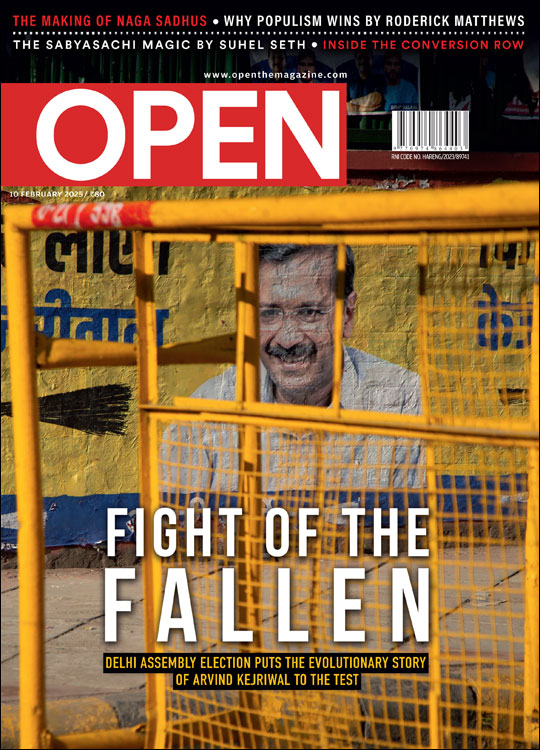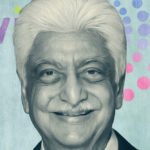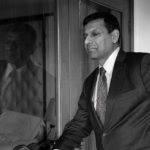Alyssa Ayres: ‘‘Nothing is guaranteed as India looks to its future’’
Open Conversation with Alyssa Ayres, Senior fellow for India, Pakistan and South Asia, Council on Foreign Relations, US
 Siddharth Singh
Siddharth Singh
 Siddharth Singh
Siddharth Singh
 |
25 Jan, 2018
|
25 Jan, 2018
/wp-content/uploads/2018/02/Alyssa-Ayres.jpg)
ALYSSA AYRES IS a South Asia specialist at the Council on Foreign Relations, an American think-tank. In her previous role as the US deputy assistant secretary for South Asia in the Barack Obama administration, Ayres had a ring-side view of events in one of the most challenging parts of the world from an American foreign policy perspective. She has written extensively on the region. Her first book, Speaking Like a State: Language and Nationalism in Pakistan (2009), was a scholarly monograph on that complex country. Her most recent book, Our Time Has Come: How India is Making Its Place in the World, was published earlier this year. She was in India recently to participate in a seminar. In our conversation, she speaks of the challenges India faces and the strides that it has made in achieving its rightful place in the world.
Where do you see India-US relations ten years from now?
That’s a great question. I have been pleasantly surprised by the continuity and speed with which the security relationship has hurtled forward; that was enabled by the civil nuclear agreement. Even in spite of the fact there are no US supported reactors being built in India. [The nuclear deal] has unlocked the defence and security relationship in a way that I am not fully sure people anticipated ten years ago. It is a wonderful thing that has happened. I think we can anticipate seeing that relationship continue to deepen and move ahead. I have argued for a deepening of the cooperation on counter-terrorism; I would hope that does continue to grow and develop further, but we see a lot of good cooperation in continuing to move forward particularly on what’s called co-development and co-production and there’s a lot of interest in finding ways for our militaries to continue to work more closely together. I see that as an area that will continue to grow. Ten years from now, let’s see where we are.
I think we are probably going to continue having a lot of hiccups and frictions on the trade and economic side. We can think of the many different ways that could evolve, but I do think, as I try to explore in the book, that India is on some of its most important international priorities on the economic side while not being necessarily as open to other countries as many other countries are. That creates a fundamental tension in the trade and economic relationship. But I think we are going to continue to face challenges and have to find our way through those.
What can be done to fix such economic friction? Is it more of a domestic Indian challenge even 25 years after the first wave of liberalisation?
The question answers itself. It has been the case that the gradual process of economic liberalisation happens in incremental steps. So you see every opening is a kind of additional incremental step. For example, in a specific sector there will be a further opening of FDI regulations or there will be a further lowering of certain kinds of tariffs. Things don’t just happen in one big swoop. I think we are going to have economic frictions and that is a part of bilateral relationships. What we ought to be focused on in the bilateral relationship is finding ways through these, anticipating that they will happen, and not letting particular problems infect the whole relationship. That was why I pointed to this idea of framing the relationship as a joint venture, something we did conceptually in the Task Force Report from 2015 (‘Working With a Rising India: A Joint Venture For a New Century’, Council on Foreign Relations). When you have a joint venture, you assume that you are going to have some areas of very close and deep cooperation and there will be some other areas that are perhaps not among them, but problems in one area do not necessarily infect the other or create challenges that cannot be overcome.
As Prime Minister Narendra Modi visits Davos there is much commentary about his visit. Do you think that this visit when global economic growth is picking up again will help India attract more foreign investment? Or is the latter more a function of India clearing its FDI guidelines?
India is a huge market, and its appeal in great part stems from its scale. But as I have heard from so many business leaders over the years, the “ease of doing business” issues do make it a tough place. India has been attracting more FDI over the past few years, which is a good news story, and more FDI caps have been relaxed. But many still remain, and as importantly, many other issues catalogued in the Ease of Doing Business Index contribute to the perception of India as in generally a more difficult investment environment. As infrastructure issues get tackled (availability of electricity, etc) some of these are improving, but there is always more to do.
I find it very interesting that you have a shared sense across parties that India does not have the recognition that it deserves internationally for all the country has accomplished
There are critics in India who say ‘Look what happened to relations between the US and Pakistan’ that the US is not a reliable partner. What would you say to them?
The US and India have a very different relationship than the one between the US and Pakistan. The US has shown itself to be reliable over the last 20 years with India. So I am not sure why this continues to be an issue. This seems to be a legacy issue from earlier nuclear non-proliferation concerns, for example. I think we are over those hurdles. The civil nuclear deal helped break through some of those challenges and concerns of the past. If people continue to believe that US is an unreliable partner I would just say take a look at our track record for the last 15 to 17 years on the India-US relationship and I think it has been one of broad support.
These critics are wedded to a non-alignment view of the world or want India’s foreign policy to take a less risky course, the claim being that getting close to the US will end up antagonising China. What do you have to say to that?
I think all of us are looking at a world in which China is increasingly asserting what it would like to see in the broader Asia-Pacific, Indo-Pacific region, and I think there is a convergence of views between India and the US. Both countries are in favour of freedom of navigation, for the rule of law, essentially the liberal international order that both India and the US have supported. We may differ from time to time on issues. China is going to have its own views where it thinks India should be. I think you have seen some of it unfolding on the Doklam plateau. You may see that in the way that China has vetoed India’s effort at the UN Security Council to bring (Maulana) Masood Azhar [leader of the Pakistan-based terror group Jaish-e-Muhammad] under UN sanctions. The US has been supportive of India in these contexts, so it is for individual citizens to review history and draw conclusions.
At the Raisina Dialogue in Delhi leaders of four navies–India, US, Japan and Australia–were together on the stage and there’s been speculation that the “Quad” is closer to reality than it was a decade ago. Do you think that is a possibility now or is there more work that needs to be done? Is an increasingly assertive China speeding up the formation of this group?
The Quad is an informal and important grouping. I worry, though, that analysts will expect too much from it, almost seeing it as a military alliance. While Australia and Japan are U.S. allies, and in that sense there are reciprocal defense obligations with the U.S., India does not enter such things, as I discuss at length in the book. On the other hand, as a mechanism for four major market-oriented democracies in Asia, all of which want to protect a rules-based international order and certainly ensure freedom of navigation throughout the Indo-Pacific, the Quad is an ideal mechanism for consultation, exercises, and identifying diplomatic and strategic priorities. I do not expect the Quad to institutionalize itself in the manner of the BRICS, however, and do expect that it will continue as a looser grouping.
What do you think about the state of relations between India and Pakistan? Is there a role for the US to push the two countries in a certain direction?
I think it is pretty hard for a third party to do much in this very difficult relationship. The official US statement is that the scope and pace of dialogue between India and Pakistan is for those countries to decide. If the US can be a helpful partner, well, great, and if it can’t be helpful, well, there it is! There is a lot at risk for India and Pakistan and people do worry about continued tensions in the region. I think Americans are increasingly worried about Pakistan’s refusal to deal with these terrorist groups, something that has become more and more apparent as the years have unfolded. So there’s increasing sympathy for India for the challenges that it faces. But you’ve had the news that there is a very quiet dialogue between the two national security advisers, and it is good that it is staying out of the press. Having that channel at least helps de-conflict whatever might be happening in public.
Why is there so much difficulty in the relationship between the US and Pakistan?
It is not as if the difficulty is new. This is a long story that has had many different chapters as the story has unfolded [for 20 years or so] over non-proliferation concerns. In recent years, the concern has been about terrorist groups. The US-Pakistan relationship is one that is a set of imperfect expectations. Both countries are looking for something that is quite different. Their expectations from the relationship are quite mismatched. So it has been so difficult because we are not looking for the same thing. The US is now seeking support for the war on terror and for stability in Afghanistan and for the international effort there. Pakistan has its own concerns that do not always perfectly align or even overlap significantly with ours.
The US-Pakistan relationship is one that is a set of imperfect expectations. Both countries are looking for something that is quite different. Their expectations are quite mismatched
Where do you see those ties going in the next, let’s say, two or five years?
I won’t predict for the next five years. That’s too far out to know and there’s been such volatility in the relationship that it is really difficult to say. We are in a rocky period now. I think we are going to see rockiness and continued friction there certainly for the course of the next year. I think what the Trump administration has done is a continuation of some of what had begun at the very end of the Obama administration, which had begun to withhold some of the additional security funding, some of the Coalition Support Funding that began in 2016. It is now continuing. It is a real concern on the part of the US and this is not just the executive branch: members of the Congress are very concerned about this, seeing that Pakistan has terrorist groups that are inimical to achieving success in Afghanistan and that are in some cases creating a challenge for our own troops there.
With reference to your earlier book on language and nationalism, India has seen a conservative political party in power for some years now, one that has a fundamentally different outlook on Indian nationalism. Would you worry about that?
My focus is really on India’s role in the world and what I have tried to bring out in the course of this book is how I do think there’s a kind of shared foundation of assumptions across parties that India should have a larger profile, a larger global role and more recognition of the status where it should be. I think where you see increased [Indian] patriotism in the world… I see that is shared. The title of my book comes from a quote from something that both Manmohan Singh and Narendra Modi have said. So I find it very interesting that you have that shared, across-party, sense that India does not have the recognition that it deserves internationally for all that the country has accomplished. Now, is there a changing sense of nationalism and patriotism and what that means in India? I think this is something where you have got a lot of contestation over what type of India should exist, what does that mean [and so on].You see a lot of ferment on questions of religion, on questions of personal law, on questions of gender, on questions of caste. These are not new questions, these are questions that people in India have been deliberating over and debating for decades. And, as I say in the book, I don’t actually expect these big debates about the nature of India to be resolved before India becomes a major power in the world, which it already is in many ways. So I expect these to be issues that Indian citizens continue to argue about with each other for some time to come.
As India prepares to make its place in the world, what are the difficulties and problems it will face? China? Defence preparedness? What comes to your mind?
There are many of them. The component of India’s economy is vital. And nothing is guaranteed as India looks to its future. That future does depend on seeing sustained high rates of economic growth to build a robust economy to create opportunities for all the citizens who are coming of age and in creating space for everyone’s prosperity. I see that as a goal that is common to parties throughout the country. I mean nobody is looking for India not to do well. The question of defence preparedness is an important one. I see that India’s ambitions are increasing and the scale of defence modernisation is also increasing. The idea of attaining primacy across the Indian Ocean is an important ambition and that has embedded India in an ever-larger conversation about security in the Indo-Pacific region. It has linked India with partners across Asia—Japan, Australia, the US. That’s very important obviously. I know that it is the case that defence procurement in India does not always move quickly as people would wish it to, and to that I would say the same thing happens in the US; there is always a kind of under-delivery over the ambition. That is part of the procurement process.
There’s the issue of how India decides to present itself globally. What issues will it take up? There’s the issue of participation in institutions of global governance. That’s where I think the US can be uniquely helpful. It has, for example, been working closely with India in the non-proliferation regime. But it is a challenge for India to carve out that larger place when being denied access to those institutions.

/wp-content/uploads/2025/01/Cover-Kejriwal.jpg)













More Columns
Revealed! Actress Debina Bonnerjee’s Secret for Happy, Healthy Joints! Open
Has the Islamist State’s elusive financier died in a US strike? Rahul Pandita
AMU: Little Biographies Shaan Kashyap